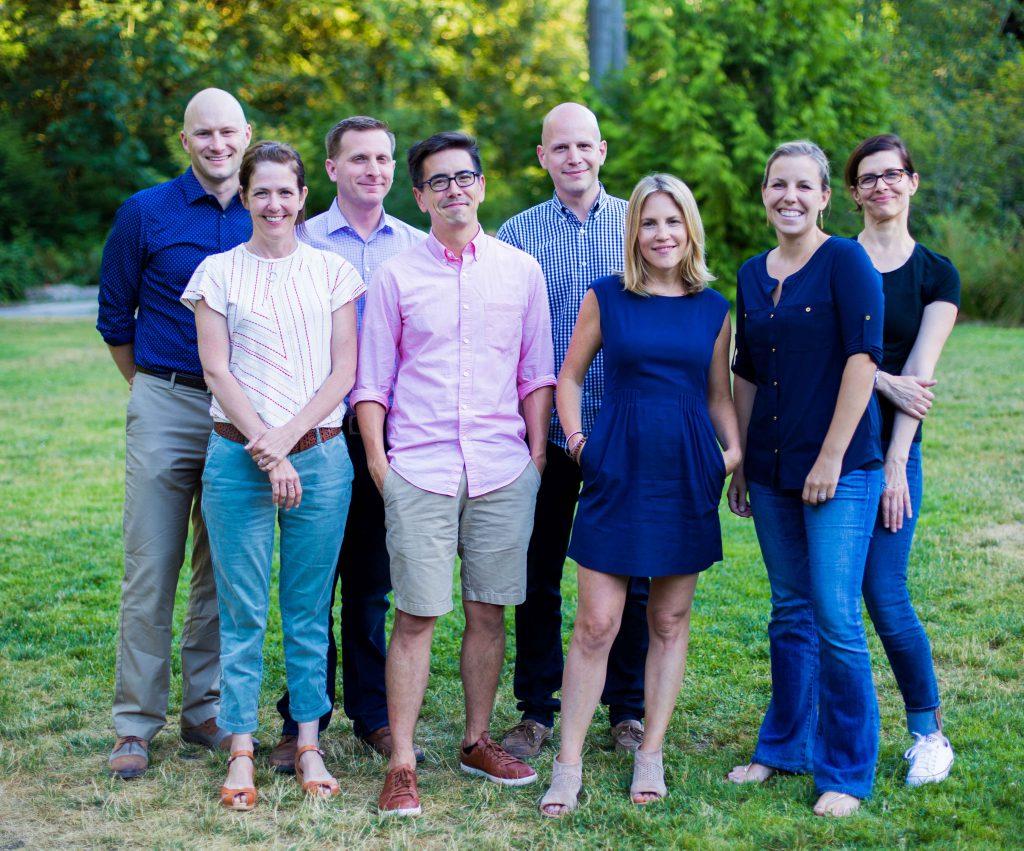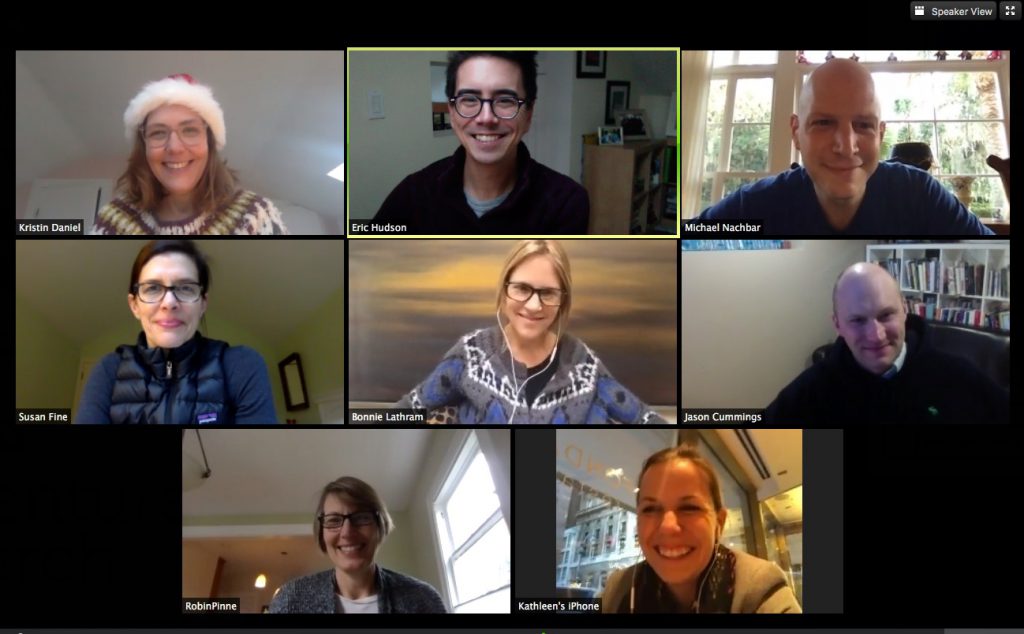Why Online Collaboration and Connection Matter More than Ever
During a meeting the other day someone jokingly asked, “What do you call this? A video conference? A phone call? What is this called these days?!” My answer was, “A meeting.” Though some people are reluctant and unsure of how to engage when they can see the people they’re meeting with on their screen, this is business as usual today.
While recently serving on a search committee for an organization on whose board I serve, one of the questions we asked was for candidates to share an experience where they fostered a sense of community with a remote team. The answers ranged from honest expressions of discomfort to experienced understanding of how to connect and engage with people when you’re not together physically.
One of our GOA core competencies for students is that they will learn how to collaborate with others who are not sitting with them on campus, and our teachers design experiences that allow students to practice that skill throughout the course and semester.
This is not a skill that is on the horizon. We need to ensure that our students are practicing and acquiring skills like this today. And it’s not just being comfortable with video calls. It’s knowing how to foster a sense of connection and community with those we don’t see every day. How do you build trust and collegiality? How do you create norms for working together? How do you build a team? How do you participate when you’re part of a remote team?
During GOA’s nascent years I went through several stages of acceptance regarding remote working, urged on and supported by my amazing team. At first, I thought that if there were a team all in the same city, they should be together physically. We had five people working in our Seattle office, and eventually grew to include four others living on the East Coast (and one in Costa Rica for two years). As our office needs changed, we shifted towards an office policy that allowed all of us to work from home on Fridays. Then Mondays and Fridays. Then it didn’t make sense that we were paying for office space when everyone was working from home 40% of the time, so we went fully remote.
When we did that, we needed to really focus on the systems and rituals we had in place to make our team feel like a team. We implemented Slack and created channels for people to share pictures of their dogs and kids. Another channel to share articles and other materials we read or watched related to the work we were doing. Teams had channels and pairs of colleagues as well.
We built in Tuesday Stand-Ups to share what we were working on, and monthly huddles for deeper dives into different topics. We restructured the organization so that everyone belonged to a team, which met bi-weekly.
We get together every summer, cook meals together, go boating, take walks. We know the names of each other’s children and share their milestones. We ooh and aww at cute dog pictures and catch up after the weekend.
There is still work to be done. Customs and rituals are a pivotal part of belonging to a tribe, and we need more of those. It’s hard to do that without making it feel artificial, but it’s something on our minds. We need to build in systems so that our work feels more transparent, and we need to create more opportunities to share what we’re doing.
The workforce our students are joining is rapidly changing. With more and more people freelancing new ways of working and connecting are becoming ubiquitous.
Since students do not know how to do this, we have to be deliberate and intentional about creating opportunities for them to practice. As educators, we need to practice, too.
At GOA, we use Zoom, Slack, Basecamp, Freedcamp, and other tools to help us connect and collaborate. What are some ways you and your team collaborate and connect online? Connect with us on Twitter @GOALearning and share your favorite tools, tricks, and hacks for connecting across schools, learning organizations, and networks.
For more, see:
- 10 Education Predictions for 2018
- 50 Books for Rethinking School
- The Power of Networks: 10 Ways Schools are Tackling Innovation
Global Online Academy (GOA) reimagines learning to empower students and teachers to thrive in a globally networked society. Professional learning opportunities are open to any educator. To sign up or to learn more, see our Professional Learning Opportunities for Educators or email hello@GlobalOnlineAcademy.org with the subject title “Professional Learning.” Follow us on Twitter @GOALearning. To stay up to date on GOA learning opportunities, sign up for our newsletter here.


